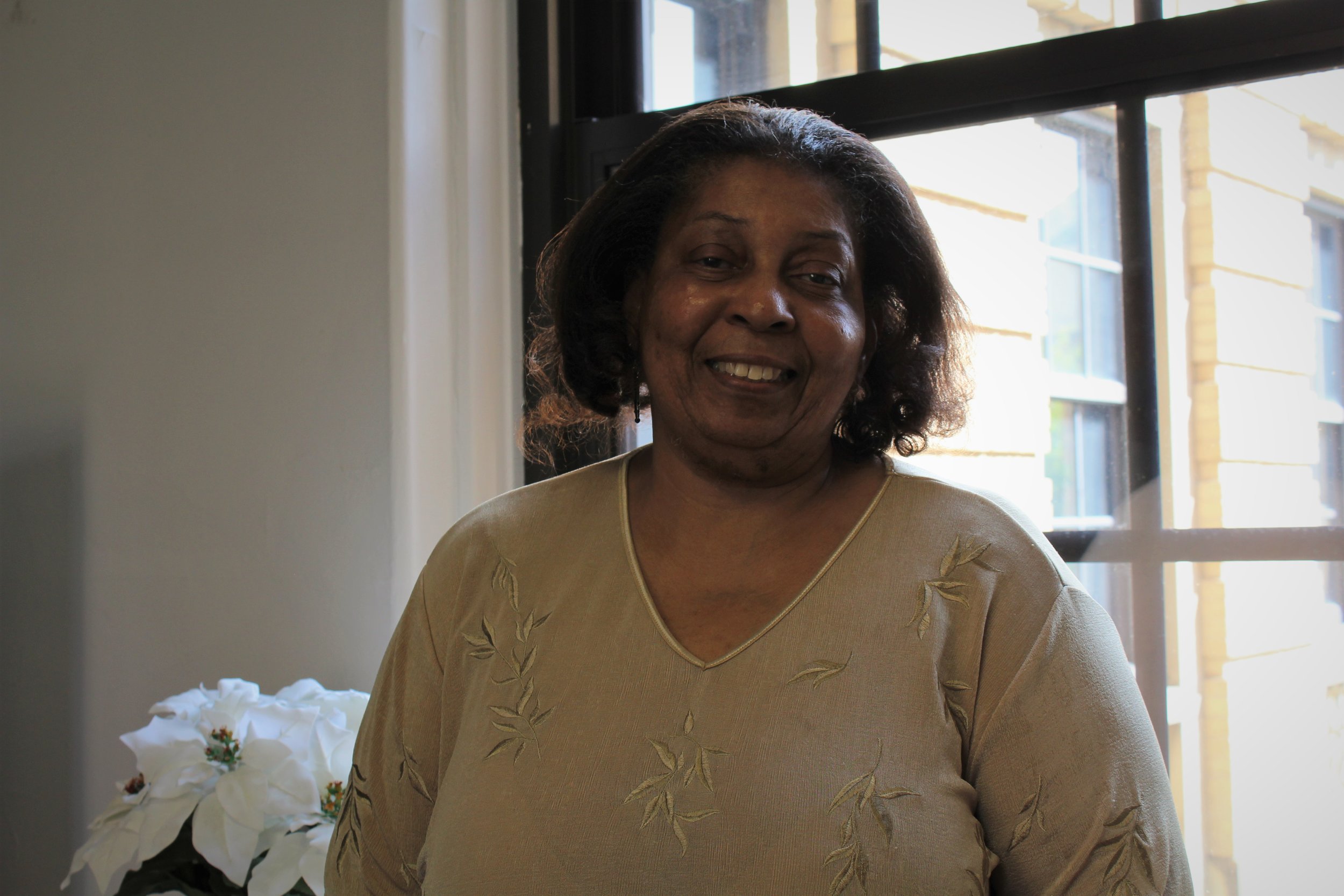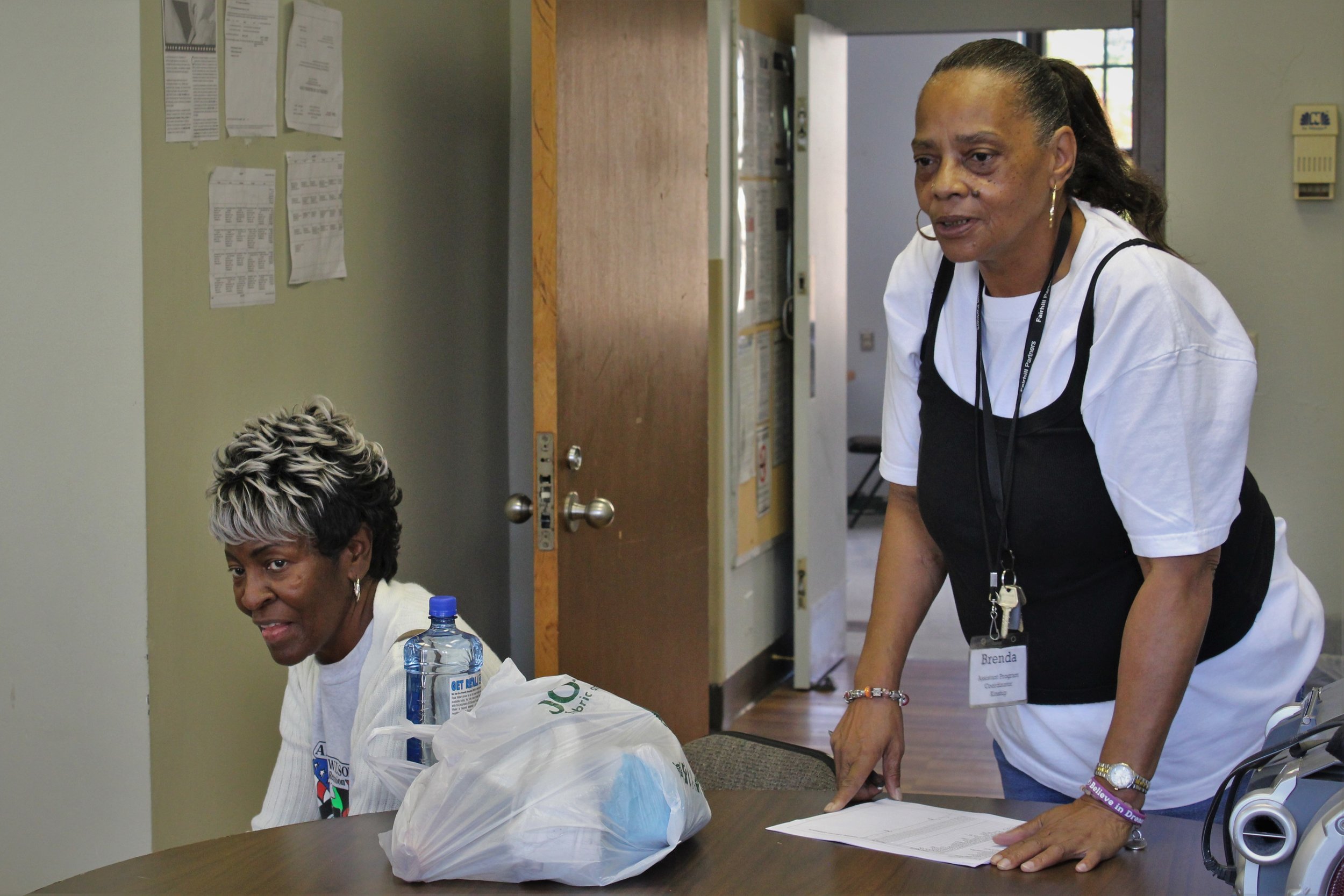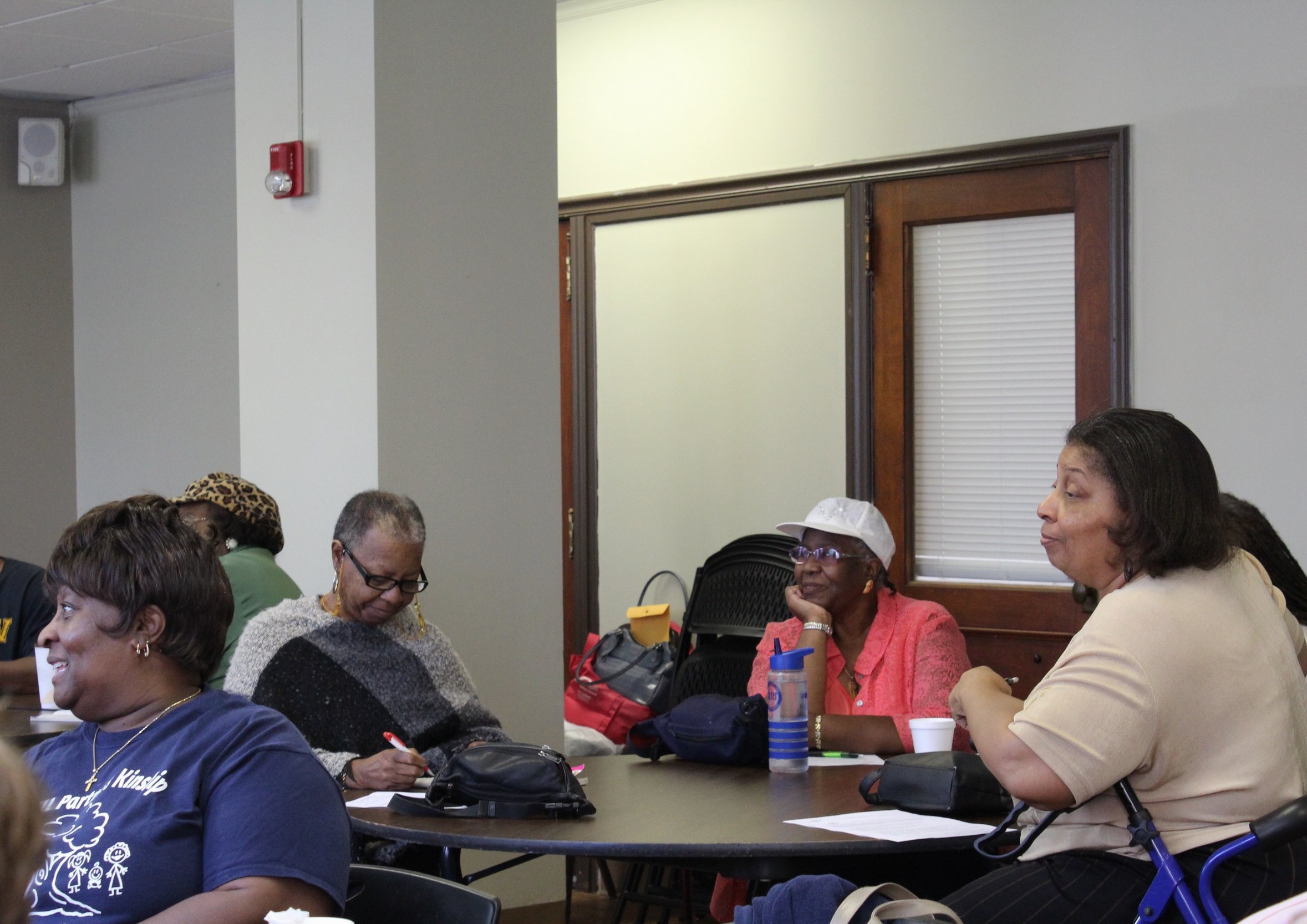Photos: Angie Hayes
Peggy Ellen Faulkner was going to get groceries one day. It was not going well.
Her two grandsons were in the backseat, standing up, no seatbelts on. Their mom was up front with grandma, fighting on the phone with her boyfriend. Peggy Ellen couldn’t take it.
"I told her, I said, ‘Look, you need to get yourself together.’ I said, ‘Because they are number one. They are the most important thing in your life and if you don’t get it together I’m gonna take them from you.’"
That definitely quieted things down. There was this stunned silence in the car. Peggy Ellen wasn’t sure where the words came from. The moment passed, life went on.
Then, a few months later, her grandsons’ mom brought the kids over for what was supposed to be just a normal weekend with grandma — reading, watching movies, maybe visiting the zoo.
Peggy Ellen noticed her older grandson had a black eye.
"I asked him what happened to his eye, and he said he fell on the floor," she says. "He had a black eye. You don’t fall on the floor and get a black eye."
It was the beginning of a two-year-long custody battle.
In the end, Peggy Ellen won the fight, and her grandsons moved in. Good news for the boys — a safe home, grandma loved them — but remember that crazy car ride to the grocery store? Now, that was Peggy Ellen’s life. Every. Single. Day.
"I only had one child," she says, "and I was an only child. Two children? I knew nothing about that. And i’m like, 'Lord, why did you send me two? I can understand one but I can’t do two. I just can’t do this!’"
The hardest part was that she felt so alone. She ended up having to retire early from her job as a teacher, so she lost daily contact with her co-workers. And most of her friends her age were kicking back, enjoying their empty nests.
Then Peggy Ellen heard about The Grandmothers Club.
Providing support
That's not actually this group’s real name. That’s just what the 20 or so women who come for the twice-weekly meeting call it. The real name is the Kinship Care Support Group, and it’s open to anyone who’s a primary caregiver to the kid of a relative or close friend.
Grandparents who act as primary caregivers to their grandkids are on the rise. In the last Census, a record 2.7 million grandparents were primary caregivers across the U.S. Some experts say the number may grow as the opioid crisis takes a growing number of parents out of commission.
The club meets a couple times a week at Fairhill Partners, a nonprofit on Cleveland’s East Side that organizes meetings and classes for the elderly. The women at today’s meeting come from all over Cleveland, but mostly from neighborhoods nearby. A lot of their grandkids are right downstairs, at a summer day camp.
There’s Rosa Johnson, a retired teacher who takes care of her two granddaughters. Maxine and Joyce Reynolds, two relatives who attend meetings together. And Alice McCoy, who lives across from the old Saint Luke’s Hospital and tutors kids in the summer camp about math.
They sit around an L-shaped table, telling stories about what’s happening to their grandkids at school, battles with kids’ biological parents, helping out with homework… Sharing advice, tips, or just commiserating.
Get a bunch of grandmas around a table, and you can be sure they won’t run out of things to chat about.
On the day I attend, the grandmas spend their first few minutes kind of half-complaining, half-joking about how kids don’t learn cursive writing anymore.
But then things turn heavier. A couple of the women say they’re concerned about social promotion — how teachers sometimes move kids to the next grade before they’re really ready.
"It’s frustrating to a kid if they start out trying to do something and they can’t," says one grandmother. "And then everything you do, the next thing builds on so the kid is frustrated from the jump."
Not alone
Peggy Ellen Faulkner chimes in with her own story, about her younger grandson, who brought home F’s on his report card.
"I called the school and said, 'I know you’re not passing him.’ [They said] ‘Ms. Faulkner, what are you talking about?’ [I said] ‘He got an F in reading and an F in math. He’s not being passed, i’m telling you now.’ They’re like, 'Ms. Faulkner —’ ‘No, i don’t want to hear it. He’s not passing.’"
You might think, from the confident way she talks, that Peggy Ellen fit right into this group from the beginning, no problems. But actually, when she came to her first Grandmothers Club meeting about four years ago, not long after she was asking God why he sent her two grandsons, she was nervous.
"I didn’t want to talk because I didn’t know anybody," she says. "And they made everybody introduce themselves and when they got to me it just seemed like all the sudden I just opened up."
She found herself telling her whole story. The black eye, the custody battle, how she’d never tried raising two kids at the same time before.
And all around the table, she saw other women her age. Nodding their heads. Listening.
They were looking back at her like she was one of them.
"With open arms, you know? And like it’s all right," she says. "Because I did kinda come to tears for a minute but they let me know it was all right. I was safe."
She pauses.
"You think you’re alone but you’re not."
Comfort and crying
According to Brenda Cheatham, who organizes the group for Fairhill Partners and is also a member, that may be the chief value of the Grandmothers Club - feeling, for at least an hour or two a day, that you’re not alone.
"We have a camaraderie," she says. "If I’m having a problem, nine times out of 10 the other grandma has had that problem. And she can help me, direct me, comfort me, we cry together."
Cheetham also brings in professionals to give talks. Not just about how to raise grandkids, but how grandmas can keep themselves healthy, too. That’s important for aging people who have to chase toddlers at a stage of life when most people are slowing down and taking it easy.
"If they come in and say, 'Well, Brenda, I want to know about diabetes, can you get a nurse to come in? Can you get a lawyer that deals with seniors? Then I try to find a lawyer."
A recent study showed that grandparents’ health initially declines when they take in grandkids, probably due to the jolt of activity and stress that kids bring. But if grandparents find the resilience — and support — to stick it out, the study said their health actually improves over what it was pre-kids.
Peggy Ellen Faulkner has a theory about why.
"If you sit down and do nothing, I found out, you waste away," she says. "Not just physically but mentally. So with them around, physically I had to move around, but then I always needed to be thinking, reading things, teaching them."
Resting and doing nothing may have sounded good, she says, but the reality may have been far different.
"I’m glad they’re here," she says. "They’re gorgeous, they’re beautiful, they need me — and I need them."
And for all the times when they, or their teachers, are driving her crazy — or when she’s just feeling lonely — she says she needs the Grandmothers Club, too.



